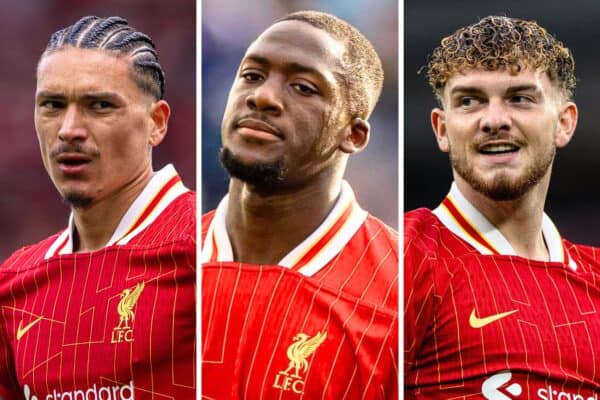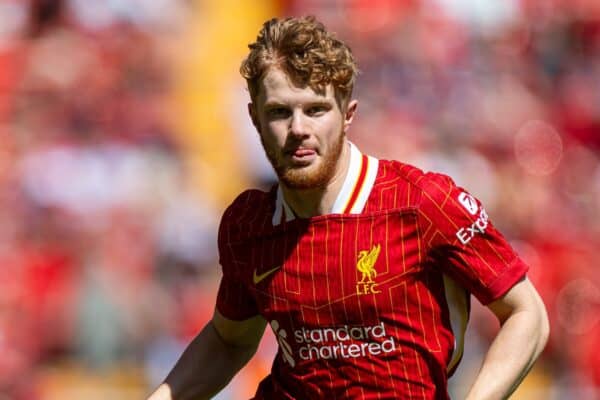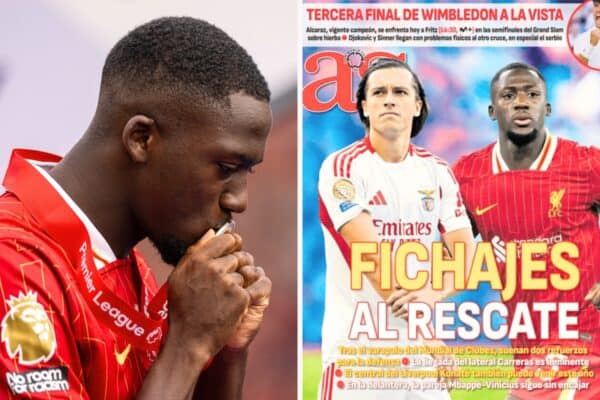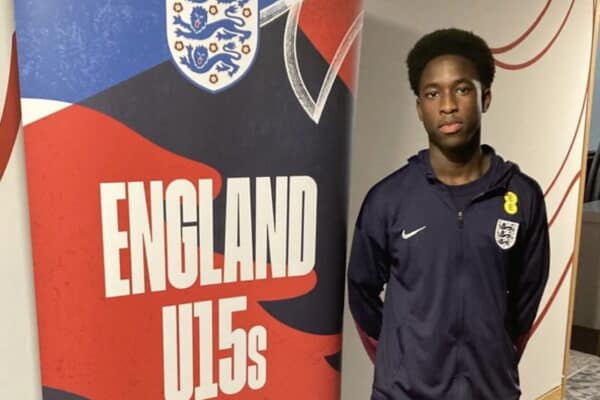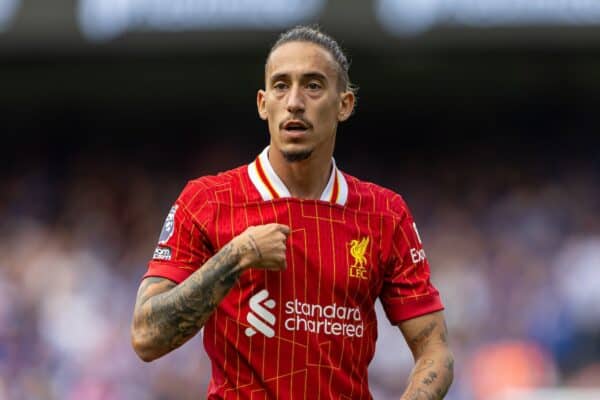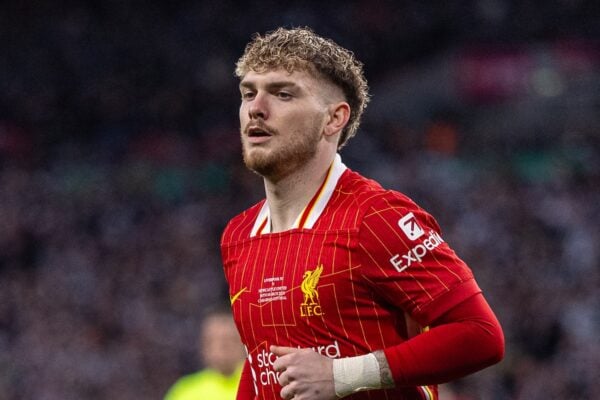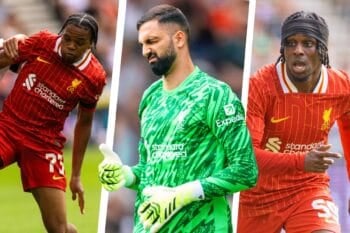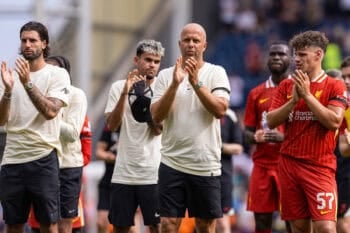Events at Anfield recently seem to have caused more over exaggerated media attention than a Geordie’s pre-season ambitions! The national media seems to be constantly waiting to prey on and over-hype any negative events at the club both on and off the pitch, whether it’s a poor result or apparent concerns over the manager.
A number of people have been quick to argue for a change of manager as the solution to any on-field, or even off-field, problem. This has been particularly rife amongst the media, although some Liverpool fans have expressed similar views.
Changing managers more often than a Frank Lampard goal takes a deflection might be seen as a quick and easy solution to a run of poor results for many clubs, particularly in the middle and lower end of the Premier League, but that’s never been the approach that Liverpool have adopted. You only have to look at the evidence to see that a change in manager so often only provides a quick fix, whilst failing to solve the long-term problem (and in some cases fails to even provide the quick fix). Also, aside from Avram Grant (who is effectively still playing the same team and tactics as Mourinho anyway), 4 of the top 5 teams in the Premier League are also 4 of the teams with the longest serving managers in the league. And the top 2 sides have had managers in place for far longer than any other club in the country.
Teams such as Newcastle and Spurs, who have been through an almost uncountable number of managers within the last decade, have also lacked consistency and have generally not made consistent progress over this period. In fact in the case of Newcastle, they have arguably gone backwards over this period when you consider their league placing under Kevin Keegan’s first spell and later under Bobby Robson (although their demands and expectations are in a league of their own).
Surely therefore it seems obvious that stability in the management (and also amongst the playing staff) is far more likely – although not certain – to breed success. However, another factor which has become increasingly important in the modern game of course is money! While stability and continuity are important at any successful football club, the addition of large sums of money can be a major advantage both in the short term and the long term. Chelsea is the obvious example; where Romans Roubles have played a crucial role in an average clubs sudden success in recent years. Although there are other examples; look at Manchester City, although the acquisition of a far more astute manager in Sven Goran Eriksson has been significant, there is no doubt that the money of the clubs new owner has been a distinct advantage in there improved fortunes. Maintain stability in the club’s management along with a regular supply of money is an excellent formula for success, and if a team like City are to maintain this in the coming years then they could potentially be a force.
This is were present concerns over Liverpool’s current owners are particularly important. In spite of any recent poor form and certain signings failing living up to there billing, investment in the playing side of the club is essential in attempts to make progress towards the likes of Man United and Chelsea. These two clubs in particular, seem to have almost unlimited transfer funds; whilst Liverpool may not be able to match this at the moment, we need investment in order to go some way towards catching them. This is where we assumed the new owners would come into there own, but unfortunately this does not seem to be the case. Whether its because the Americans simply don’t have the money to meet the clubs needs, perhaps underestimating the required funding when they bought the club, or they are unwilling to spend that amount of money to support the team or the current management, isn’t clear, although further investment is a must.
 Hicks’ recent comments have further undermined Benitez’s position as manager, and surely had some sort of effect on the players – with plenty of speculation that there is also a rift developing between the two owners. The whole affair is being conducted in a very ‘un-Liverpool way. This added to the fact that the big money does not appear to be forthcoming (with rumours surfacing that Gillett and Hicks are struggling with debt created from the purchase of the club and transfer fees) suggests that the Americans are not the answer. The renewed interest of DIC may be a more attractive option; but if a deal was to be done with DIC it would beg the question of why DIC were rejected in the first place in favour of Gillett and Hicks.
Hicks’ recent comments have further undermined Benitez’s position as manager, and surely had some sort of effect on the players – with plenty of speculation that there is also a rift developing between the two owners. The whole affair is being conducted in a very ‘un-Liverpool way. This added to the fact that the big money does not appear to be forthcoming (with rumours surfacing that Gillett and Hicks are struggling with debt created from the purchase of the club and transfer fees) suggests that the Americans are not the answer. The renewed interest of DIC may be a more attractive option; but if a deal was to be done with DIC it would beg the question of why DIC were rejected in the first place in favour of Gillett and Hicks.
The whole issue of investment and the off field problems are a different matter, but one thing that is required is stability in the coaching and playing departments. Getting rid of Benitez is more likely to result in the club going backwards at the moment, especially when you consider the lack of quality candidates to take the job. Ok, if in twelve months or so down the line things have still failed to improve it could possibly be time to reconsider. Instead, at the moment it will be far more beneficial to concentrate on improving the playing squad and results on the pitch; which would of course be helped hugely by extra investment.
For a manager to build his own squad and team it normally takes time and getting a new manager could well put the club back to square. There are some very good players at Liverpool – Torres, Gerrard, Carragher, Reina, Agger, Mascherano to name a few. Although some of the players in the squad are probably not up to this standard and some extra quality on the wings and up front would be good, there is the makings of a good squad at the club. It is also interesting to see how well the reserve team is doing this season (they were top of the league until recently), with some good young players; add to this the fact that Liverpool have won the youth cup for the past 2 season and it suggests promise for the future. The off-field events of recent months have been disconcerting for Liverpool fans and the situation hasn’t been helped by some poor results. But surely the best thing to do at the moment is to continue getting behind the team and hope for improved performances in the short term, and, in the long term, for the off-field problems to be resolved by whatever means necessary without effecting what happens on the pitch and for the squad to improve and move forward.




